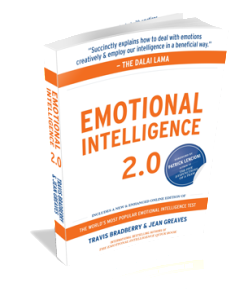Mentally reviewing the skills it involves and understanding which ones it needs to work on is the first step in increasing it. The psychologist argues that external feedback is also a great gauge for guiding and developing IE. Through the Emotional Intelligence Summary you can have the best choices now.
We have spent many years with our eyes on the intellectual quotient of people, when the reality is that IQ only represents 20% of a person’s success, according to the latest studies. Hence, there are extremely intelligent people who carry out functions of little responsibility. So where does the remaining 80% come from? Some luck, the influences we have achieved in our career and, to a large extent, our emotional intelligence, are also determining when building a promising future. And we have good news although some of these emotional skills are determined by our genetic map and our childhood, most of them are likely to be learned and improved throughout life if we employ the right methods.
What is emotional intelligence?

Although since the 1920s several scholars have begun to speak of intelligence other than strictly cognitive, the concept of emotional intelligence is due to Wayne Payne, who cited it in his Ph.D. It was highly regarded until the publication of the book ‘Emotional Intelligence’ in 1995, when its author, David Goleman, popularized this idea and associated it with the business world. Peter Salovey, Marc Brackett and John Mayer, in their work ‘Emotional Intelligence: Key Readings on the Mayer and Salovey Model’, define emotional intelligence as ‘the ability to reflexively perceive, integrate, understand and manage one’s own feelings and others’. For Goleman, emotional intelligence is the ability to manage emotions so that they are adequately and effectively expressed, enabling people to work in a coordinated manner around common goals, highlighting five key competencies of emotionally intelligent people:
- Self-awareness: They are aware of their own emotions and can recognize a feeling when it arises.
- Self-management: They control personal impulses and passions so that they are not dominated by them.
- Self-motivation: They develop positive stimuli such as enthusiasm that help achieve goals.
- Empathy: They have the ability to put themselves in the other person’s shoes and to understand their feelings.
- Social skills: Establish good relationships with the individuals with whom they interact.
Why and how to develop emotional intelligence?
Cinema has brought us close to many somewhat stereotypical examples of subjects with extraordinary but emotionally dysfunctional cognitive intellects, leading them to failure in their personal and work relationships. If we can learn to properly manage our feelings, we will be in a better position to meet the challenges. In fact, the emotional intelligence quotient (EQ) is so relevant in our professional development that it represents 58% of income in any kind of work and becomes the greatest promoter of leadership and personal excellence of individuals, according to a study. As a result, having a human team with emotional skills will mean an increase in the company’s performance and results, not to mention increasing employee satisfaction and motivation levels and improving the company’s working climate. To benefit from all these advantages, we will only have to set in motion an action plan that includes the following steps proposed by researchers.
